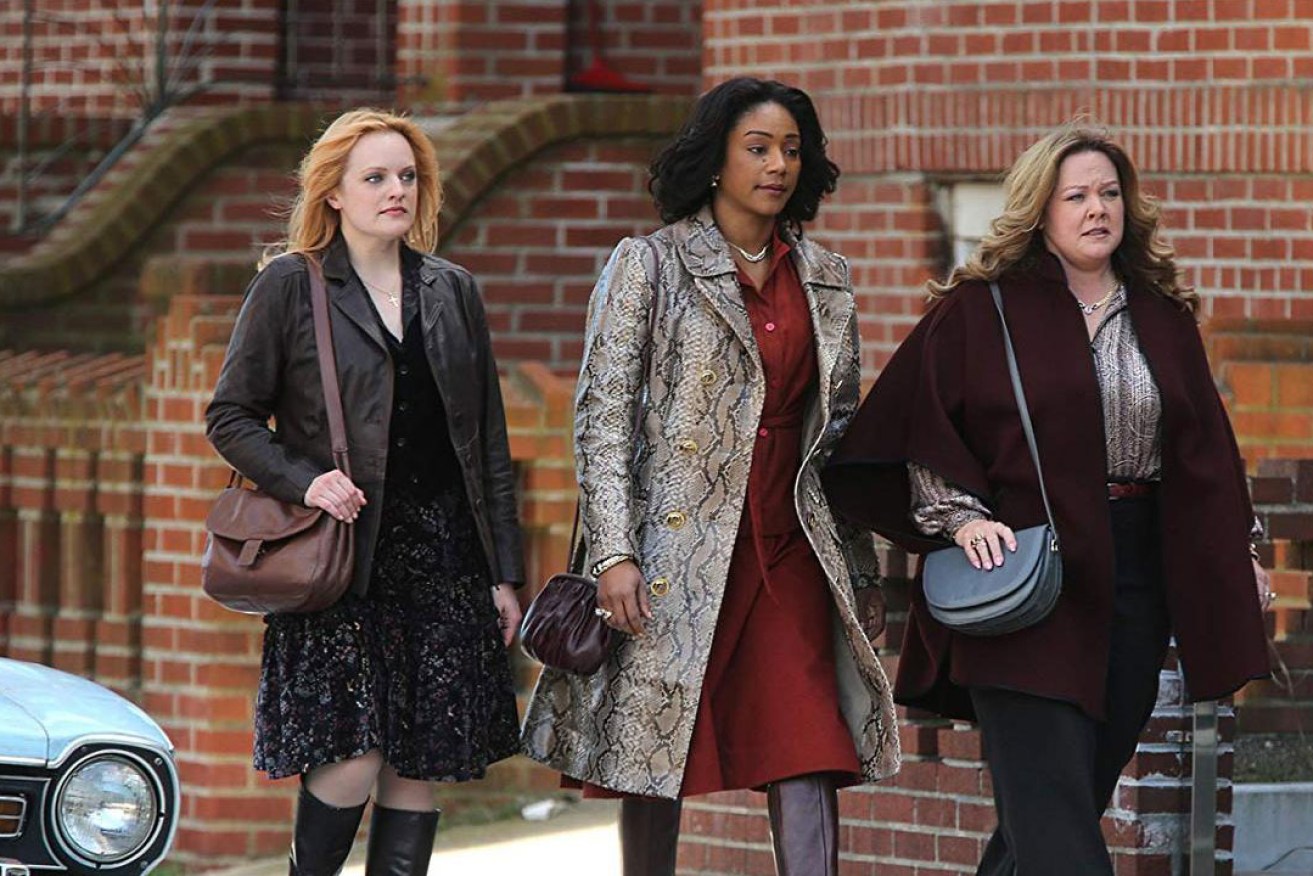Film review: The Kitchen
This film does not fit into any fixed genre. It’s not a gangster movie. It’s not a crime thriller. It’s not a chick flick nor a comedy. But it is entertaining, writes Susan Mitchell.

Set in the 1978, The Kitchen is about three wives who take over their husbands’ Irish mafia jobs in Hell’s Kitchen in New York after the men end up in jail for a botched robbery. While it might sound similar to another recent film, Widows, it is nothing like it.
An original story written and directed by Oscar-nominated Andrea Berloff (Straight Outta Compton), based on a comic by Ollie Masters, it stars three strong actresses: Melissa McCarthy (Bridesmaids, Can you Ever Forgive Me), Elisabeth Moss (Mad Men, The Handmaid’s Tale) and Tiffany Haddish (an exciting fresh voice in comedy).
Most male critics hated it. Most women viewers liked it. Could this be because the real theme of the film is about women seizing power? Surely not! There is some violence and gory bits, but that’s expected if you take jobs away from Irish gangster blokes.
The emphasis of the film is on how the women use their newfound power.
They don’t just knock off their enemies, they also offer small local businesses genuine protection. They give employment to locals in the construction industry, and the neighbourhood benefits from their rule.
The three women are also changed by their new roles. Having been physically bashed by men all her life, Claire (Moss) becomes obsessed with revenge at any cost. Ruby (Haddish) has married into a violently racist family and her aim is to fill Hell’s Kitchen with victims of racist oppression and empower them. Kathy (McCarthy) is married to a quiet, ineffective man who, when he comes out of jail, endangers the lives of her children with his inability to deal with his wife’s power; she will not put up with it – or him.
Any woman who has attempted to take assumed power away from men in either their working or their personal lives will “get” this film, as will any woman who has challenged a man’s sense of entitlement or attacked a male ego.
These three female characters are not special, nor are they saints. And the film’s ending is neither sentimental nor triumphalist; it just indicates the way sensible women handle power conflicts if given a chance. Most of us are much smarter and stronger than we imagine.
Dr Susan Mitchell is a film and drama critic, an author, broadcaster and public speaker.




